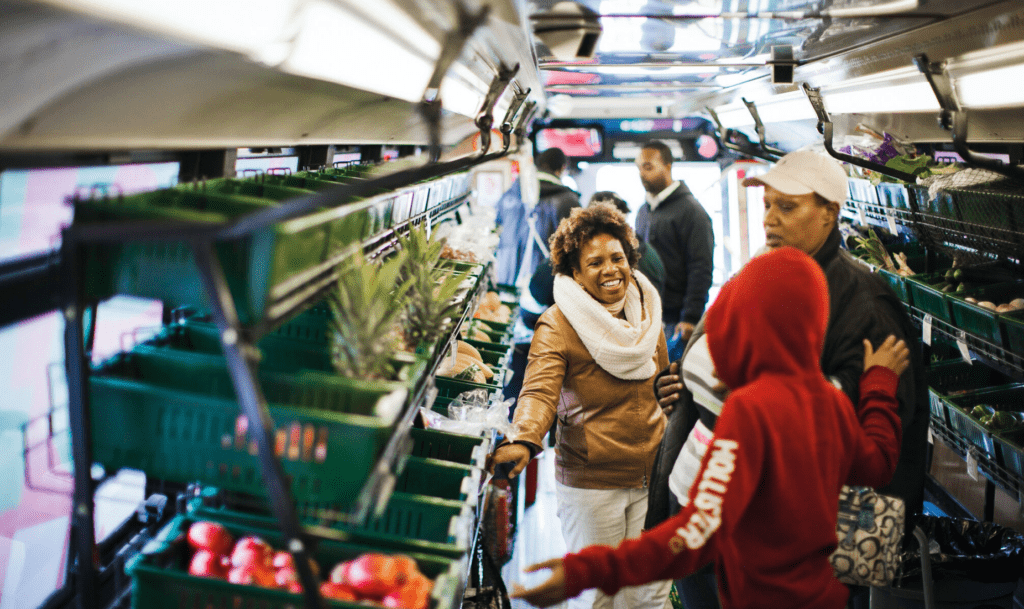
In a major New York Times feature about bringing function and equity back to the food system, Navina Khanna, the executive director of HEAL (Health, Environment, Agriculture and Labor) Food Alliance and Dara Cooper, executive director of the National Black Food and Justice Alliance (NBFJA), are quoted.
In discussing the ways in which the pandemic exposed major problems in the food system, Ligaya Mishan writes:
[F]or a number of Americans, the phrase “essential workers,” with its heroic overtones, has revealed for the first time something of the long-ignored lives of the farmers, meat processors and grocery store employees without whom there would be no food on our tables. “Covid has illuminated for a broader public that we have a food system,” says Navina Khanna, 40, the executive director of HEAL (Health, Environment, Agriculture and Labor) Food Alliance, who lives in Oakland, Calif. This is in part because business leaders stoked fears of empty supermarket shelves, warning in the early days of the crisis that lockdowns might jeopardize the food supply. (In the blunt equation of capitalist production, the workers are worth less than the chickens they are processing.) Tyson Foods, headquartered in Springdale and the nation’s largest meat processor — in 2020, it reaped $43.2 billion in sales, $800 million more than the previous, non-pandemic year — took out a full-page ad in major newspapers in April. “We have a responsibility to feed our country,” John Tyson, the chairman of the board, wrote. “It is as essential as health care.”
Later in the piece Mishan discusses the work of NBFJA.:
In 2011, Cooper helped transform a decommissioned city bus into a mobile market, Fresh Moves, that sells vegetables from local farms and plies the streets of underserved neighborhoods, both to draw attention to the problem and to offer a prototype of a solution. The issue isn’t just proximity to a grocery store but who’s running it: When big-box stores move into Black communities, they often bring bias with them, which manifests in uneasy interactions with customers and a reluctance to hire local staff. As with Karen Washington’s gardens in the Bronx, Fresh Moves was intended to be a business in and for the community, and demand was high. “We were next to an ice cream truck, and our line was longer,” Cooper says.
For a number of Black activists, the idea of growing your own food is potent, as both an act of self-sufficiency and a repudiation of an agricultural past in which Black people were not owners but enslaved. During the pandemic, [NBFJA] has received a record number of calls asking for guidance in starting vegetable gardens. Soul Fire Farm, a nonprofit in upstate New York, offers workshops that combine hands-on training in traditional African agrarian practices with an examination of the food system through the critical lenses of race and class. As for those subscription Community-Supported Agriculture (C.S.A.) boxes — a program offered by farms as a way for customers to buy shares in a year’s harvest, with deliveries of fresh produce as regular dividends — mocking them as a white-progressive accessory ignores the pioneering efforts of Booker T. Whatley, a professor of agriculture at Tuskegee University in Alabama, who urged readers of his 1987 “Handbook on How to Make $100,000 Farming 25 Acres” to establish what he called clientele membership clubs in which customers would pay up front for a season of food, as a way of guaranteeing business.
Read the entire article.